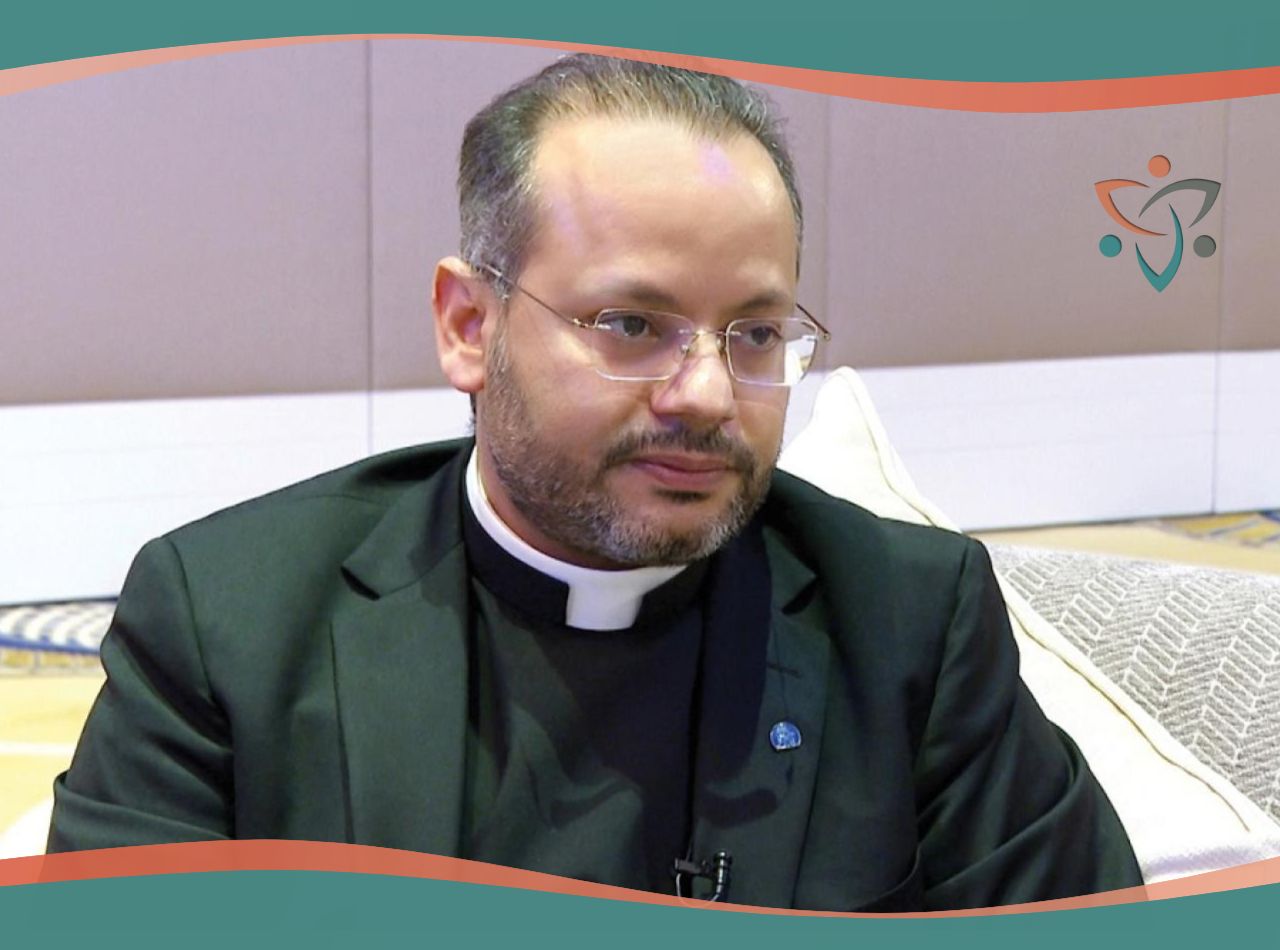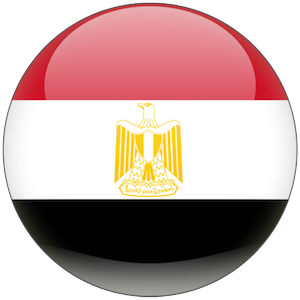
Former Secretary to Pope Francis: Either Dialogue or Barbarism Father Youannis to

Former Secretary to Pope Francis: Either Dialogue or Barbarism
Father Yoannis to "The Independent Arabia": His Holiness yearns to visit Lebanon and hold a conference there that depends on the internal desire and the Abrahamic House for coexistence between religions and not their fusion
In the midst of conflicts here, and conflicts there, the need for peace is increasing and the search for a sign of hope that extinguishes the flames of wars and cools their wounds through a message of harmony and affection that unites and does not separate. During this thirst that prevails in our world, there is the message of the "World Interfaith Harmony Week" which begins on the first of February each year, and was endorsed by the United Nations in 2010, in recognition of the urgent need for dialogue between different religions, and to promote mutual understanding, harmony and cooperation between people.
"Either the culture of dialogue or the barbarism of non-dialogue." These were some of the words quoted by Father Yoannis Lahzi Gaid, former personal secretary of Pope Francis and head of the Foundation for Human Fraternity, in an interview via "Zoom" from his office in Rome with "The Independent Arabia", speaking of Pope Francis' efforts in rapprochement with the Arab and Islamic world to build bridges of dialogue and peace, which resulted in the Human Fraternity Document that he signed with Sheikh Al-Azhar Ahmed Al-Tayeb in February 2019, as a global declaration of coexistence, peace and human fraternity, on the basis of which the United Nations General Assembly adopted a unanimous resolution declaring February 4th. "International Day of Human Fraternity", as part of an initiative presented by the UAE, Egypt, Saudi Arabia, and Bahrain.
Letter of Assisi
It seems that Pope Francis bears not only the name of St. Francis of Assisi, who traveled more than 800 years ago to meet Al-Malik Al-Kamil, Sultan of Egypt in 1219, but also his message. Since Pope Francis assumed the Holy See in 2013, he has shown special interest in the Arab region and Christian-Islamic dialogue, which was reflected in his visits to the Holy Land and Jordan in May 2014, then to Egypt in April 2017, a visit that bore the slogan "The Pope of Peace in Egypt of peace," included dialogue with Al-Azhar and the Coptic Orthodox Church.
In 2019, the Pope visited both Morocco and the Emirates, where he signed the Human Fraternity Document in the latter, and his visit to Iraq in 2021 carried many messages, especially as it came in light of the outbreak of the Corona virus and amid security concerns after a series of missile attacks targeting the Ain Al-Assad base that hosts American forces. The visit also saw the holding of the first spiritual summit with a high-ranking Shiite reference, Sayyid Ali al-Sistani. Finally, he visited Bahrain in 2022 within the framework of the Bahrain Forum for Dialogue "East and West for Human Coexistence."
Lahzi, whom the Pope described as the unknown soldier behind the Vatican's efforts to achieve peace and promote dialogue with the Islamic world, says, "These visits illustrate the importance that Pope Francis gives to the Arab region in the context of his belief in the necessity of rapprochement and coexistence to confront violence, divergence, terrorism and hatred. The remedy is dialogue, brotherhood and rapprochement."
When asked about the fruits of those efforts and the goals achieved through visits and dialogue, he pointed to several points represented in the convergence that is reflected in the acceptance and respect enjoyed by the Vatican in the Middle East and the Arab world, saying, "This is something we all touch, and we touched it in Egypt in 2017," referring to the hospitality that The Sheikh of Al-Azhar received Pope Francis at the time.
He adds, "The close relationship between His Holiness the Pope and all the people and leaders in these countries, an example of his relationship with Egyptian President Abdel Fattah El-Sisi, Pope Tawadros and His Eminence the Grand Imam, are all the result of mutual visits and dialogue between them," adding, "The most important and biggest result is respect and mutual acceptance of the difference and the other, so the other did not become Enemy, the difference in religion is not a disagreement, but a difference.
The Abrahamic House of coexistence, not fusion
Lahzi added that the Human Fraternity Document, which was signed in Abu Dhabi in 2019, is "the most important fruit, and it is considered one of the most important documents that were signed between the Christian and Islamic worlds in almost all history, and it is the only one that was signed by the Pope himself and the Grand Imam, which demonstrates its importance." and the importance of its content.
He adds that "the Higher Committee for Human Fraternity includes high-level international personalities known for dialogue and rapprochement between religions and cultures, and it is also one of the fruits of signing the Document of Human Fraternity, just as the United Nations' establishment of the International Day of Human Fraternity on the fourth of February corresponding to the day of signing the document is important in itself. ".
When the "Abrahamic House" was announced, coinciding with the celebration of Human Fraternity Day, last year, the initiative project was attacked as threatening religious identity and working to integrate all religions into what was called the "Abrahamic religion", and others considered it an attempt to market Israel in the region, allegations that It was previously denied by Counselor Muhammad Abdel Salam, Secretary General of the Human Fraternity Committee and former advisor to the Grand Sheikh of Al-Azhar.
In response to a question regarding these accusations related to fears of promoting the so-called “Abrahamic religion,” Lahzi said, “The Abrahamic House is based on respect for the difference of each religion, so they did not build a single temple in which everyone prays, but rather allocated a self-contained mosque and a self-contained church.” And a self-contained synagogue, that is, a separate building for all followers of a religion to pray, according to their religion, beliefs, and rituals. He added that the allegations are an attempt to criticize a wonderful and good project that reflects the heart of the document of human Fraternity for coexistence between religions, and not its fusion, stressing by saying, "Unification of religions is not an issue in the first place." He continued, "It is absurd to believe that His Eminence the Imam, His Holiness the Pope, and heads of state met to establish a religion. This is talk that does not deserve comment on it."
The culture of dialogue or the barbarism of non-dialogue
The relationship at the diplomatic and official level appears to be very good, and is witnessing increasing understanding and rapprochement, but the rule remains the basis.
Related news
Pope Francis blesses the statue of Carlo Acutis for the Oasi della Pietà orphanage
His Holiness Pope Francis blessed, on Wednesday 17 March 2021, the statue of Blessed Carlo Acutis, which will be placed in the "Oasi della Pieta" orphanage in Cairo, w
Read MoreHis Excellency President Abdel-Fattah El-Sisi allocates a land in the Medical City in the New Administrative Capital for the establishment of Bambino Gezo Hospital in Egypt.
The new administrative capital in Egypt August 21, 2022 –
Within the framework of the new republic that was inaugurated and led by His Excellenc
Read MoreSheikh Osama Al-Azhari visits the projects of the Human Fraternity Foundation in the new administrative capital
Today, His Eminence, Imam Osama Al-Azhari, one of the scholars of Al-Azhar, advisor to His Excellency the President of the Republic for religious affairs, and a member of the Bo
Read More

.png)
.png)
.png)